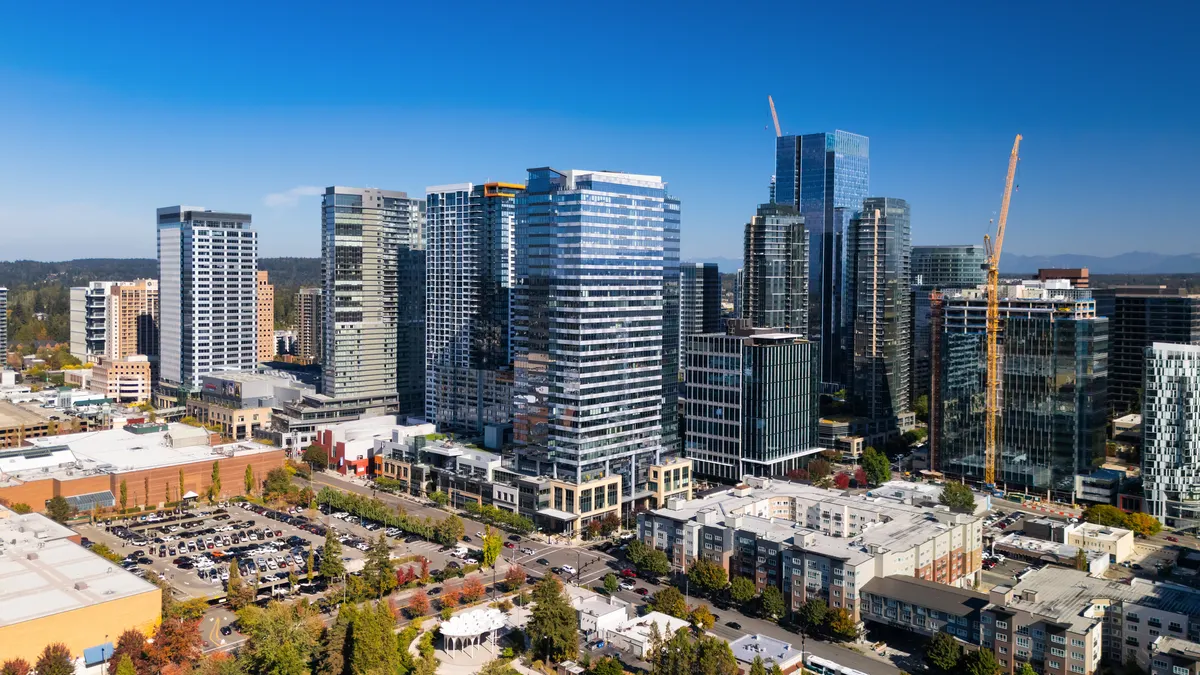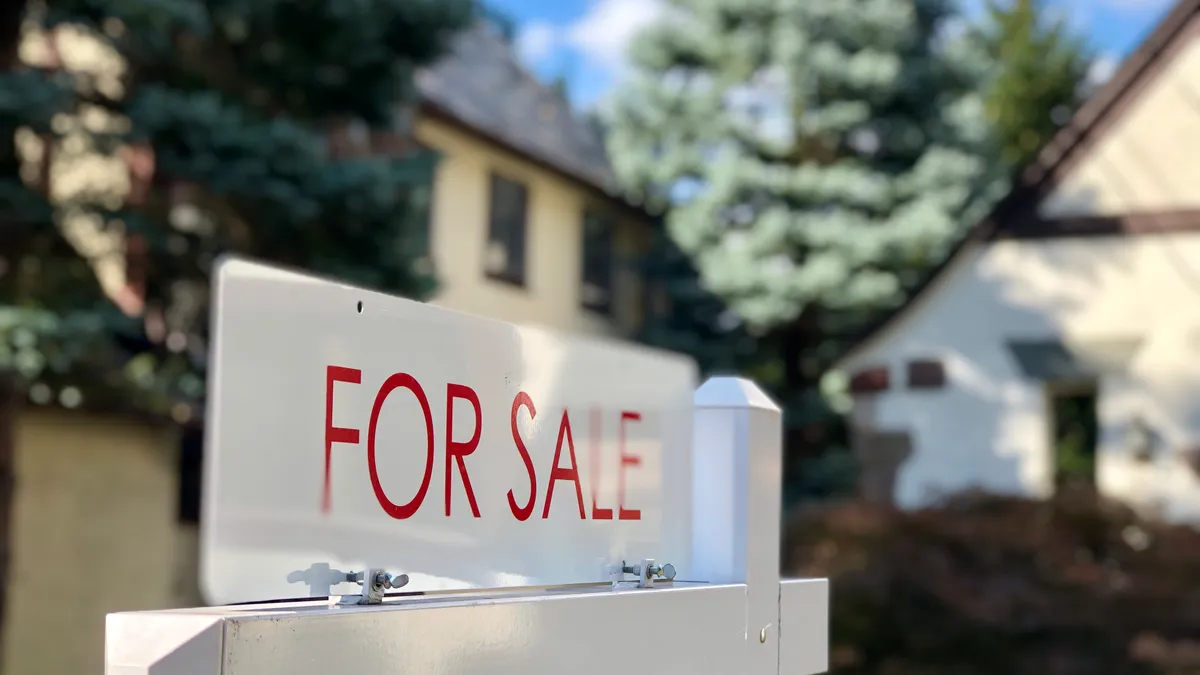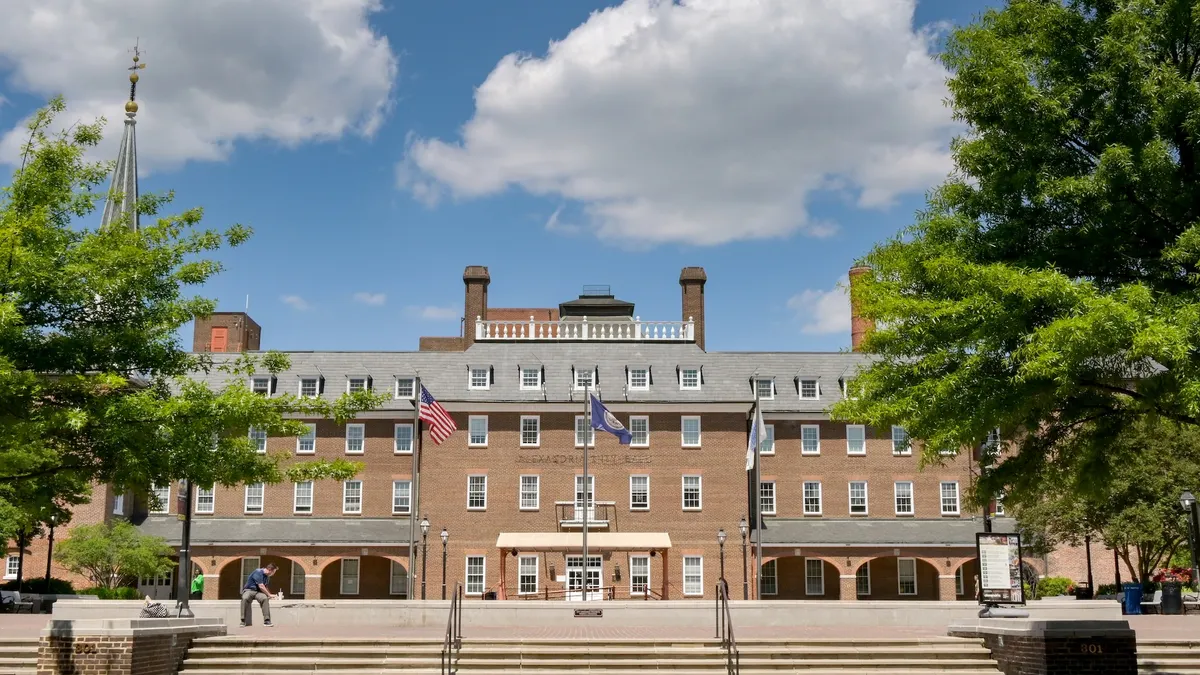During a recent Smart Cities Week panel on recruiting, training and retaining smart city talent, leaders from both the public and private sector took the stage to highlight the most crucial elements of a successful workforce: trust, equity and collaboration.
Of those leaders was Anthony Amato, Vice President of Business Services at Workforce Opportunity Services (WOS), a nonprofit designed to help underserved communities grow talent and diversify their workforces through organizational partnerships. Amato's work with WOS In The Community helps to give interpersonal skills training — primarily digital literacy — to various community and city residents, pushing the needle forward on bridging educational and opportunity gaps.
Smart Cities Dive caught up with Amato after the panel to gather insights on the importance of having a diverse workforce, the value of one-on-one training and the role that universities can play in helping cities boost and retain talent.
This interview has been edited for clarity and brevity.
SMART CITIES DIVE: The homepage of Workforce Opportunity Services' website reads, "It's one thing to have diversity. It's another thing to be diverse." Can you elaborate on what this means to WOS and the work that you do?
ANTHONY AMATO: The way that quote kind of came about is that companies are just trying to check boxes, they want to hire a certain number of people, but that doesn't mean they integrate those individuals into the company and actually get diverse backgrounds and diverse ideas because that's the whole point of diversity. It's not so much that the individuals look a certain way or check a certain box. The real power of diversity is the diverse set of ideas that individuals bring from these diverse communities.
We do a program for veterans and the veteran community brings a certain mindset into your company and that diversifies the thought processes, even some of policies ... It's not just one thing to say I want to hire people from the local community. It's to bring them into the community and make them part of your company where they're actually adding meaningful value and driving some level of change. Because as you know, most companies are run by non-diverse individuals. So that's what we mean by that. We don't just just drop people off at your doorstep you know to help your numbers [so] you're more diverse. We work with the line managers and senior executives ... to understand how to assimilate that talent and make them part of their culture which then diversify their ideas.
One thing you touched on during your panel is the element of trust. How does trust act as a tool for retaining a workforce?
AMATO: It's a big challenge. There's not a simple answer to that. What I would say is to use organizations like ours that help bridge that divide ... We don't really have any skin in the game [for the city], our advocacy is for the students or for the person in the program. So we can give them advice and point them in a certain direction that works for them. Whereas if they're dealing directly with an employer or an organization that maybe has a certain agenda, it clouds that. But our success is really just [that] the individuals in our program are successful. There's really only only one measure of success: Did we complete the job that we promised those individuals that we would do?
So that's how we kind of build trust because when we have these conversations with individuals in the program, we're trying to get them to orient themselves in a certain way that's going to make them successful. And you can't do that unless they trust you. We do spend a lot of time with them building those kinds of connections that are lifelong.
What is unique that universities can bring to the table in regards to helping cities and organizations boost and retain talent?
AMATO: I think one thing they can do is they can open their borders. A lot of time cities have universities within them and they become like these enclaves. Columbia [University] is kind of like that. That was what drove our founder to form WOS because he had these pockets of individuals who live in Harlem ... But very few individuals who live in Harlem make their way onto Columbia's campus even though it's technically an open campus. There's kind of a divide. What I would like to see ... is [for universities] to open up doors let the community in. Give more of an emphasis on trying to be more inclusive in the neighborhoods that they actually reside in.
Looking forward, what is WOS most excited about?
AMATO: We have a process, a talent community that we launched last year called WOS Digital. We find individuals that are looking for work but maybe they don't have the right fit for the current positions are looking for now and need some polishing so we put them into WOS Digital, we put them on learning paths so they can increase their learning. We also have someone who's a community engagement specialist who's working with their resume to get them prepared to kind of enter the workforce.
The idea is that, as that population grows, we're going to bring in our current group of individuals that we're currently working with into that population, and then the alumni. The goal long-term is to have this community of individuals who are looking for work, who are currently working, who have already gotten out of our program and have careers, where they can help mentor and talk about experiences ... We feel like through that digital platform you can tie all those groups together and that could be a very powerful thing.




















